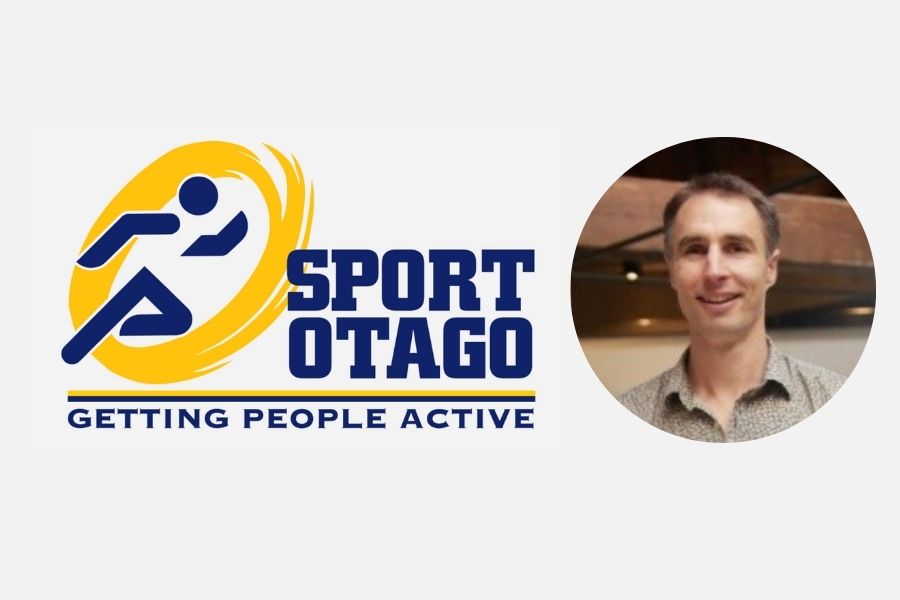Sport Otago CEO hopes New Zealand Government will amend gambling bill

Sport Otago CEO James Nation hopes the New Zealand government will amend its proposed igaming bill.
The bill, which the government is expected to decide on in mid-November, will include new regulations for advertising igaming, including broadcasts and sponsorships.
Nation said that while the bill would help with the government’s efforts to regulate offshore gambling, he was concerned that it would affect local sports clubs and organizations in its current form because operators would not be obligated to return portions of the profits to the community.
“Without community reinvestment being mandated for overseas operators, the bill risks deepening inequality — allowing profits to go offshore while the social costs of gambling remain in our vulnerable communities,” Nation told the Otago Daily Times. “If these overseas operators wish to profit from our communities, they must also contribute to their well-being. Anything less is exploitation.”
Nearly 5,000 parties have made submissions on the proposed bill, including Jodi Brown, General Manager of Basketball Otago, who said, “Basketball Otago simply would not be able to function at its current level, and the breadth of basketball opportunities in our region would be significantly reduced.”
This comes after the New Zealand amateur men’s football league came under scrutiny after it had drawn the attention of offshore gambling operators.
Abi Bray brings strong researching skills to the forefront of all of her writing, whether it’s the newest slots, industry trends or the ever changing legislation across the U.S, Asia and Australia, she maintains a keen eye for detail and a passion for reporting.
Verticals:
Sectors:
Topics:
Dig Deeper
The Backstory
Why the bill matters now
New Zealand’s push to legalize and regulate online casinos is entering a decisive phase, with lawmakers weighing how to open a market long dominated by offshore sites while protecting consumers and domestic sports funding. The government’s Online Casino Bill cleared its first reading and moved to a select committee, where public input and industry lobbying have sharpened choices about license numbers, ad rules and whether foreign operators can compete on equal footing. Ministers have framed the plan as a safety-first reset that will impose standards, levy operators and block unlicensed sites, but industry and community groups warn the details will decide whether profits stay onshore and harm is contained.
At stake are billions in potential online gambling turnover, the future of TAB New Zealand’s role in digital wagering and the funding lifelines that community sports say they rely upon. The outcome will set the contours of a new licensing market slated to open in 2026 and determine whether the shift reins in offshore play or accelerates it under a government imprimatur.
From unregulated access to a licensing pivot
The government’s case for change leans on a basic reality: New Zealanders can already access thousands of overseas casino sites with few safeguards. The bill would create a regime of up to 15 licenses, bring providers within a harm-minimization net and recoup regulatory costs from operator fees, according to the first-reading summary. Conditions under discussion include strict age checks, transparency on compliance histories and contributions to a problem gambling levy. Penalties for violations could run as high as $5 million.
That framing has drawn conditional support from operators eager for legal access and consistency, but it has also triggered a broader fight over design. Industry players argue fewer, higher-quality licensees will be easier to police. Community groups counter that opening the market without a mandated local return risks moving profits offshore while social costs remain in New Zealand.
Who gets a license — and how many
The most immediate clash centers on market size and eligibility. SkyCity Entertainment Group, which runs casinos in Auckland, Hamilton and Queenstown, has urged the government to restrict the field to local firms and cap licenses at five, warning that 15 would splinter oversight and tax yields. In documents cited by media and summarized in reporting on SkyCity’s submission, the company says limiting licenses to New Zealand-incorporated operators is the safest way to ensure taxes and responsibilities land at home. TAB New Zealand has pressed a similar argument for five to seven licenses to avoid multinational dominance.
Internal Affairs Minister Brooke van Velden has publicly resisted preferences for incumbents, signaling a competitive process that allows foreign bidders while warning that favoring locals could run afoul of trade commitments. The government plans to begin issuing licenses in February 2026 for an initial three-year term, with precise advertising and harm rules still to be finalized. That timeline is forcing operators and community stakeholders to set their red lines now, before the framework hardens.
TAB, Entain and the charge of a back-door monopoly
Parallel to the licensing debate, the government is pushing back against efforts by TAB New Zealand, the state-backed betting monopoly for racing and sports, to secure special treatment in the online casino market. Officials have already rejected a TAB offer of NZ$150 million for a decade-long license tied to fewer total licenses, with van Velden insisting the state should not operate online casino games. TAB, which has a 25-year partnership with UK-based Entain guaranteeing more than NZ$1 billion in the first five years, argues a near-monopoly online position would safeguard funding for racing and sport by boosting Entain-linked payments.
Officials counter that, since the Entain deal splits revenue with a for-profit offshore operator, granting a monopoly now would look like conferring an exclusive on a global gambling firm while sending profits abroad. The clash underscores a core tension: whether the bill should shore up legacy funding structures or prioritize open competition that the government says will drive safer standards. The answer will determine how much leverage incumbents have when the auction opens — and whether the market evolves around a single dominant player or a small group.
Sports funding fears drive an unlikely coalition
Outside the casino and racing sectors, community sport has emerged as a powerful voice against the bill as drafted. More than 50 organizations argue the proposal ignores a key pillar of New Zealand’s grassroots ecosystem: gaming trust grants that channel about NZ$170 million annually to local clubs. In urging changes, leaders told media the bill’s silence on mandatory community reinvestment by licensed online operators is a “dangerous omission” that could drain funds from junior programs and volunteer-run leagues. Their case is detailed in coverage of the sports coalition.
Regional advocates have amplified the warning. Sport Otago chief executive James Nation said the government’s plan to regulate offshore sites is overdue but risks worsening inequality if foreign operators can profit without obligations to communities. He urged lawmakers to require contributions as a condition of entry, emphasizing that clubs depend on funding that could vanish under an open market. The concerns and local testimony are captured in reporting on Sport Otago’s push for amendments, which also noted thousands of public submissions to the select committee.
Advertising tsunami or safer playbook
The plan to lift the advertising ban is another flash point. Community trusts and harm prevention advocates told MPs to brace for a surge of inducements — “push alerts” and “free money” offers — if the bill opens the airwaves and digital platforms. They warned that geo-blocking unlicensed sites will be porous and that legal ads could normalize ubiquitous online slots in homes. Those warnings, along with a case study of a gambler trapped by wagering requirements after a large bonus, were outlined to the select committee and reported in coverage of advertising risks.
Operators and TAB representatives counter that regulation, not prohibition, is the best way to set guardrails, fund harm services and displace predatory offshore sites. The government has promised strict ad standards, especially around children, and a defined contribution to the problem gambling levy. The unresolved question is whether those rules will blunt the volume and tactics of marketing that critics say drive problematic play — and whether enforcement can keep pace with cross-border campaigns.
What to watch as lawmakers rewrite the rules
The select committee phase is the pivot point. Expect intense lobbying on three fronts: how many licenses will be issued; whether the field is open to foreign firms; and what mandatory reinvestment, levy rates and ad limits will be baked into licenses. SkyCity and TAB want fewer licenses, arguing quality and oversight, while sports groups want hard requirements for community funding. The government is signaling openness to competition and strong consumer protections, but it has ruled out special deals for incumbents and has cautioned against policies that could breach trade obligations.
With license issuance targeted for 2026, the legislative calendar now forces compromises. If ministers narrow the field, domestic operators could gain pricing power and clearer lines of accountability. If they keep it broad, they may capture more tax and compliance visibility but risk the saturation that community groups fear. Either way, the bill’s final shape will determine whether the policy achieves its dual goals — shifting gamblers from unregulated offshore sites to safer domestic platforms while preserving the social compact that underwrites New Zealand’s community sports.




